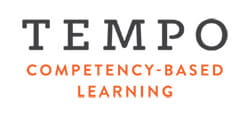You touch patients’ lives every day with your care and compassion. Now it’s time to focus on your own journey—with Walden’s CCNE-accredited Bachelor of Science in Nursing (BSN) online program.
Our BSN program prepares registered nurses with additional skills in leadership, community health, and health promotion. These skills are critical in the transformation of the nursing field, as outlined in The Future of Nursing 2020–2030 report.1
It takes guts to put your nursing career first. But when you pursue an education for good at Walden, you’ll be empowered to impact the lives of countless others as well as your own. It’s an investment in yourself—and your community. Walden’s bachelor’s degree in nursing program is designed with working nurses like you in mind, giving you the flexibility to stay on the job while making steady progress toward your goals. It’s nursing education built for real life.
Bachelor of Science in Nursing (RN-BSN) Completion Program
At Walden, we believe nurses like you have the power to change lives and that guiding patients to better health is your calling. You’ve already got the experience as a registered nurse (RN), now it’s time to get the credentials that match.
Walden’s RN-BSN program now offers two ways to complete your degree. Choose from traditional Course-based or Tempo Competency-based options.
With Walden’s RN to BSN completion program, you can benefit from:
- Save time and costs. With our competency-based Tempo Learning option, you may be able to complete your BS in Nursing degree in 10 months for under $14,000**
- Teaching faculty that are 100% doctorally prepared, providing you with a level of expertise that’s second to none.
- Coursework that fits your schedule.
- A range of student support services to help you every step of the way.
Entry Requirements
Admission is considered for licensed RNs who hold an associate degree or nursing diploma with a GPA of 2.0 or higher. Applicants must also meet one of the following criteria:
- You are 21 years of age or older.
- You are less than 21 years of age with 60 quarter credit hours.
- You are an active member of the military or a veteran with documentation of service.
- You are concurrently enrolled in an approved partner institution with an articulation agreement with Walden.
For admission into Tempo Learning, students must have an associate degree or diploma in nursing and a Valid RN license and must transfer in 110 quarter credits from prior course-work.
You will also be required to submit a completed online application, employment history, and official transcripts.
Your enrollment specialist will help you gather all of the required materials starting with your application all the way through your first day of classes.

Choose an accredited online RN-BSN program.
You touch patients’ lives every day with your care and compassion. Continue your journey to nursing excellence with Walden’s Commission on Collegiate Nursing Education (CCNE)-accredited RN to BSN online completion program. A BSN degree prepares registered nurses with additional skills in leadership, community health, and health promotion as outlined in the Future of Nursing movement.1
Why Complete Your RN to BSN Online With Walden?ACCREDITED PROGRAM
Develop skills and credentials that set you apart with our CCNE-accredited program, aligned with the American Association of Colleges of Nursing (AACN) Essentials.IMMEDIATELY APPLY SKILLS
Take nursing courses from day one and apply what you learn immediately on the job. Walden’s online BSN nursing degree program includes nursing courses as soon as you begin.EXCEPTIONAL FACULTY
Benefit from practical coursework developed by leading healthcare experts and taught by faculty with real-world nursing expertise. 100% of classroom teaching faculty hold doctorates.2INTERACTIVE SIMULATIONS
Gain practical experience and practice health assessment skills through Digital Clinical Experiences™ by Shadow Health—a realistic, interactive simulation.
Choose from two degree completion options that are both designed for working nurses.
The course-based format may be a good option for you if you prefer an instructor-led approach and learning on a predetermined schedule.
 Tempo Competency-Based Learning™ is an alternative way to earn your Walden degree. It’s different from our standard course-based learning because you can work at a pace that makes sense for you, and progress once you’ve shown you understand a subject. With Tempo Learning®, you have the flexibility of online learning, plus the ability to personalize and control the length, cost, and pacing of your program.
Tempo Competency-Based Learning™ is an alternative way to earn your Walden degree. It’s different from our standard course-based learning because you can work at a pace that makes sense for you, and progress once you’ve shown you understand a subject. With Tempo Learning®, you have the flexibility of online learning, plus the ability to personalize and control the length, cost, and pacing of your program.
Choose the learning path that fits your life and experience. Here are the two ways to earn your degree:
| COURSE-BASED LEARNING | TEMPO COMPETENCY-BASED LEARNING | |
|---|---|---|
| The standard, guided pace to earn your degree | The flexible pace, ideal for some students | |
| Time | Structured schedule | Flexible schedule |
| Pace | Deadlines to make steady progress | Set your own pace, and speed up or slow down when needed |
| Tuition | Pay by the course | All-you-can-learn subscription fee |
| Support | Faculty guide you through your courses as you earn your degree | Faculty support when you need it and a personal academic coach |
| Expert Walden Faculty | ✔ | ✔ |
| Payment Plans and Scholarships* | ✔ | ✔ |

*May not be available for all programs
Accelerate Into Master’s (AIM)
Earn up to 15 master’s-level credit hours by taking graduate-level courses as an undergraduate. This allows you to complete both degrees in less time than earning each degree separately. Learn more about Accelerate Into Master’s (AIM).COURSE-BASED LEARNING
Curriculum
Degree Completion Requirements
- 181 quarter credits
- General education courses (50 cr.)
- Core courses (51 cr.)
- Prior nursing credit/elective courses (80 cr.)
Nurses admitted to the program may be awarded up to 50 quarter credits for meeting competencies required to achieve the nursing license through either a diploma program or an associate degree program. Transcripts and diploma information will be evaluated to determine the extent of credit awarded.
This sequence represents the minimum time to completion. Time to completion will vary by student, depending on individual progress and credits transferred, if applicable. For a personalized estimate of the number of your transfer credits that Walden would accept, call an Enrollment Specialist at 844-824-6706.
Courses
Show Course Descriptions
| COURSE CODE | TITLE | CREDITS |
|---|---|---|
| CORE COURSES | ||
| NURS 3100 | ISSUES AND TRENDS IN NURSINGShow | (6 cr.) |
| NURS 3020 | HEALTH ASSESSMENTShow | (5 cr.) |
| NURS 3110 | INFORMATION MANAGEMENT AND PATIENT CARE TECHNOLOGYShow | (5 cr.) |
| NURS 3150 | FOUNDATIONS OF NURSING RESEARCHShow | (5 cr.) |
| NURS 4100 | QUALITY AND SAFETY THROUGH EVIDENCE-BASED PRACTICEShow | (5 cr.) |
| VIEW ALL COURSES |
Tuition and Fees
| CURRICULUM COMPONENT | REQUIREMENTS | COST | AMOUNT |
|---|---|---|---|
| Tuition | 51 required BSN course quarter credit hours | $335 per quarter hour | $17,085 |
| Technology Fee | Per quarter | $160 | $800 |
| $17,885* |
*Tuition reflects the minimum time to completion. Time to completion varies by student, depending on individual progress and credits transferred, if applicable. Tuition and time to complete may be reduced if transfer credits are accepted, or if you receive grants, scholarships or other tuition reductions. Walden may accept up to 5 transfer credits. For a personalized estimate of the number of your transfer credits that Walden would accept, call an Enrollment Specialist at 844-768-0109.
The nursing courses in the RN-BSN program equal 51 quarter credits. Students will need a total of 181 credits to earn the BSN degree.COURSE-BASED LEARNING AIMTEMPO LEARNINGTEMPO LEARNING AIM
FINANCIAL AID
Many Walden degree-seeking students—67%—receive some form of financial aid.* Create a customized plan that makes sense for you.
*Source: Walden University’s Office of Financial Aid. Data reports as of 2018.Find Ways to Save
PROGRAM SAVINGS
Course-Based: Receive a 10% tuition reduction for the life of the bachelor’s program if you reside outside the U.S. Exclusions apply. Contact one of our Enrollment Specialists to learn more.Get Started Now
Admission Requirements
Program Admission Considerations:
To be considered for admission to this bachelor’s program, you must have an associate degree or diploma in nursing and a valid RN license. Walden University is currently unable to accept applications for the competency-based RN-BSN AIM option from residents of the following states: Massachusetts, New York, and Rhode Island.
General Admission Requirements: All applicants must submit a completed online application and official transcripts. More information for international applicants.
Meet Your Academic Team – Online Bachelor of Science in Nursing
-
 Karen OuztsProgram DirectorDr. Ouzts has been with Walden since 2010, and she currently serves as program director for the RN-BSN program. Her primary area of expertise is public health nursing (PHN) with a focus on maternal child health. She honed her skills through PHN leadership fellowships and service as a Wyoming PHN state supervisor. Dr. Ouzts is also certified as an Advanced Public Health Nurse through American Nurses Credentialing Center.
Karen OuztsProgram DirectorDr. Ouzts has been with Walden since 2010, and she currently serves as program director for the RN-BSN program. Her primary area of expertise is public health nursing (PHN) with a focus on maternal child health. She honed her skills through PHN leadership fellowships and service as a Wyoming PHN state supervisor. Dr. Ouzts is also certified as an Advanced Public Health Nurse through American Nurses Credentialing Center. -
 Jamil NormanAcademic CoordinatorDr. Norman has over 16 years of experience as a registered nurse and 12 years in higher education. Her areas of expertise include nursing research and women’s health nursing. Dr. Norman earned a BSN from the University of Central Arkansas, an MSN from Grambling State University, and a PhD in Nursing from the University of Texas at Tyler.
Jamil NormanAcademic CoordinatorDr. Norman has over 16 years of experience as a registered nurse and 12 years in higher education. Her areas of expertise include nursing research and women’s health nursing. Dr. Norman earned a BSN from the University of Central Arkansas, an MSN from Grambling State University, and a PhD in Nursing from the University of Texas at Tyler. -
 Anita KorbeAcademic CoordinatorDr. Korbe has over 36 years of nursing experience and 16 years of experience in teaching. She has served as the president-elect and president of the South Carolina League for Nursing and as chair of the education committee for the South Carolina Nurses Association. She is also a member of Sigma Theta Tau International and has served on the board for the Gamma Omicron Chapter at Large.
Anita KorbeAcademic CoordinatorDr. Korbe has over 36 years of nursing experience and 16 years of experience in teaching. She has served as the president-elect and president of the South Carolina League for Nursing and as chair of the education committee for the South Carolina Nurses Association. She is also a member of Sigma Theta Tau International and has served on the board for the Gamma Omicron Chapter at Large.
Position Yourself for Career Growth
A BSN can lay a strong foundation for your future, preparing you for more responsibilities, higher earnings, and advanced degrees. Exchange valuable perspectives and insights with other RNs as you continue to hone your leadership and practical skills. Implement what you learn immediately to improve community health and the reputation of your healthcare environment.
Learning Outcomes
Graduates of the Walden’s online RN to BSN program will be prepared to:
- Apply leadership and informatics concepts in decision-making to promote patient safety and quality care.
- Use evidence based on the sciences, humanities, and research to guide nursing practice across the health-illness continuum in a variety of healthcare settings.
- Evaluate the implications of policy on issues of access, equity, affordability, and social justice in healthcare delivery, including the health of vulnerable populations and healthcare disparities.
- Demonstrate effective communication and collaboration skills to improve patient outcomes.
- Implement individual and population-focused interventions to promote health and to prevent and manage disease and injuries.
- Exhibit accountability for personal and professional behaviors in accordance with standards of moral, ethical, and legal conduct with a commitment to continuous professional development.
- Provide patient-centered nursing care based on a comprehensive and focused health assessment across the life span using sound clinical judgment as well as developmentally and culturally appropriate approaches.
| Bachelor of Science in Nursing (BSN) Completion Program |
 Return to: Program Data
Return to: Program Data
Return to: College of Health Sciences
The Bachelor of Science in Nursing (BSN) Completion Program provides current registered nurses (RNs) who have a diploma or associate degree in nursing with the opportunity to earn a BSN degree.
The program is specifically designed to provide students with the evidence-based practices that can be applied on the job immediately. At the same time, students will develop the skills of reflection, independent learning, and enhanced critical thinking that will enable them to stay current in their field throughout their career.
Accreditation
Walden University’s BSN program is accredited by the Commission on Collegiate Nursing Education (CCNE), One Dupont Circle, NW, Suite 530, Washington, D.C. 20036. CCNE is a national accrediting agency recognized by the U.S. Department of Education and ensures the quality and integrity of bachelor’s and graduate education programs in preparing effective nurses. For students, accreditation signifies program innovation and continuous self-assessment.
Learning Outcomes
At the end of this program, students will be able to:
- Apply leadership and informatics concepts in decision making to promote patient safety and quality care.
- Use evidence based on the sciences, humanities, and research to guide nursing practice across the health-illness continuum in a variety of healthcare settings.
- Evaluate the implications of policy on issues of access, equity, affordability, and social justice in healthcare delivery including the health of vulnerable populations and healthcare disparities.
- Demonstrate effective communication and collaboration skills to improve patient outcomes.
- Implement individual and population-focused interventions to promote health and to prevent and manage disease and injuries.
- Exhibit accountability for personal and professional behaviors in accordance with standards of moral, ethical, and legal conduct with a commitment to continuous professional development.
- Provide patient-centered nursing care based on a comprehensive and focused health assessment across the lifespan using sound clinical judgment as well as developmentally and culturally appropriate approaches.
Degree Requirements
- 180 total credits
- General education (50 cr., at least 10 of which must be completed at Walden and all of which are to be completed PRIOR to BSN core and concentration courses)
- First course (1 cr.)
- Nursing license transfer of credit (up to 50 cr.)
- Upper-level nursing core courses (54 cr.)
- Elective courses (25 cr.)
What’s the Career Impact of Earning a Bachelor of Science in Nursing?
Gain a Career Edge
As the population ages and baby boomers retire, nurses are more in demand than ever before. The Bureau of Labor Statistics predicts that employment of registered nurses will grow by 7% through 2029—much faster than the national average.3
In nursing, education matters. With an influx of graduates entering the field, a BSN can give you a competitive edge. According to a 2020 AACN survey, 82.4% of employers at hospitals and healthcare settings said they strongly prefer to hire nurses with a bachelor’s degree.4
What Can I Do With a BSN?
A BSN may qualify you for more nursing jobs or even help you advance into a leadership role. A bachelor’s in nursing also serves as a bridge to an advanced degree, whether you intend to pursue your Master of Science in Nursing (MSN) or go all the way to a doctorate.
Registered nurses who hold a BSN are prepared to pursue a variety of roles in inpatient and outpatient settings, including the ones below.
- Insurance companies
- Magnet hospitals
- Healthcare foundations
- Community organizations
- Federal agencies
- Military healthcare organizations
- Nursing organizations
- Minority nurse advocacy groups
Career options may require additional experience, training, or other factors beyond the successful completion of this online RN to BSN program.
Increase Your Earning Potential
A Bachelor of Science in Nursing degree can potentially lead to higher earnings. According to PayScale, the average annual salary for a BSN holder is $85,187.5
How Long Does It Take to Complete an RN to BSN Program?
It may take less time than you think.
If you’re considering going back to school to earn your BSN, you probably have a lot of questions. Will it be worth it? Can I keep working while I’m going to school? Where should I go? Should I attend classes in person or online? Like many students, one of your biggest concerns may be how long it will take to complete a Bachelor of Science in Nursing. Like many things in life, the answer really is “it depends.”
The good news is that you can probably make the transition from RN to BSN in less time than you might think.

The Advantages of Earning Your BSN
The data shows that nurses with a BSN have access to greater career opportunities and make more money than nurses without a bachelor’s degree. According to PayScale, the median salary for an RN with a BSN is more than $62,952 per year—higher than the median salary of $59,408 for an RN without a bachelor’s degree.1 Moreover, nurses with bachelor’s degrees often make more during the course of their careers than nurses without the BSN.
The opportunities for nurses with a BSN are greater, too. A BSN opens the door to positions in management, advanced patient care, and clinical research. Government organizations such as the military and the U.S. Public Health Service require practicing nurses to hold a BSN. A bachelor’s degree in nursing is also a requirement if you’re considering becoming a nurse educator or are interested in obtaining advanced certifications like certified pediatric nurse (CPN), advanced oncology certified nurse (AOCN), or certified registered nurse anesthetist (CRNA).2
Depending on where you live, the greatest advantage of obtaining your BSN may be that you’ll be prepared for changing licensing requirements. New York State has already passed a “BSN-in-10” law requiring RNs to obtain their BSN within 10 years of licensure3—and many other state legislatures are considering similar measures.4 If you want to prepare yourself for a future in nursing, obtaining your BSN is vital.
What Can I Expect?
The kinds of classes you’re expected to take varies from school to school, but if you’re in a program like the RN to BSN at Walden University, which is accredited by the Commission on Collegiate Nursing Education (CCNE), the curriculum will typically be divided into three categories:
- Core nursing courses
- General education
- Electives
Core nursing courses typically include the following topics:
- Trends in nursing
- Health assessment
- Clinical research
- Healthcare policy
- Information technology
- Public health
- Clinical health practice
- Leadership and management
In addition to these advanced-topic courses, you’ll often also be required to take general education courses not completed in your associate program. While courses can vary, they are typically in areas such as English, mathematics, science, and history. While it may seem like these courses have little or nothing to do with nursing, they’re designed to help develop your critical-thinking, problem-solving, and communications skills—skills that will help you become a better nurse, a better leader, and a better advocate for your patients, no matter where you go with your degree in the future.
So How Long Will It Take?
Typically, most BSN programs require students to finish 120 semester hours to obtain their bachelor’s degree. Students who are registered nurses will have completed up to half of these credits in their associate program. These are broken down into coursework and clinical training/practical learning. Fulfilling program requirements can take anywhere from one year of full-time study to three to four years at a part-time pace, depending on program requirements and transfer of credit.
It’s also possible to earn your BSN while you continue to work, a pathway that often makes it possible to take advantage of the education benefits offered by your employer, including tuition reimbursement. Earning your degree online also offers you the ability to progress through your program at a pace that works for you and your busy schedule.
The bottom line? While earning your BSN online will mean serious work, it can also mean serious benefits to your career. Considering an online nursing degree program? Walden University’s online RN to BSN program is designed for working nurses and allows you to transfer up to 75% of your credits using previous academic courses, professional development, and demonstrated college-level knowledge.
Discover how Walden’s RN to BSN online program is helping more RNs earn their BSN degree online—and in less time.
Walden University is an accredited institution offering a Bachelor of Science in Nursing (RN-BSN) Completion Program online. Expand your career options and earn your degree using a convenient, flexible learning platform that fits your busy life.
How much does Walden University’s RN to BSN program cost?
Walden University offers a Bachelor of Science in Nursing (RN-BSN) Completion Program that requires a total of 181 credits to complete, of which 135 credits may be transferred in. The program requires 51 quarter credit hours of nursing courses. According to the program website, total estimated cost for the program is at $16,050 (the cost per quarter hour is at $335), including any required fees (e.g., technology fee).
As a way of helping students, Walden University offers a Tempo Competency-Based option that allows progress at the student’s own pace and controlled cost. Through this option, students in the RN-BSN program pay a fixed subscription period tuition of $2,880 (plus a $75 technology fee) for a three-month subscription period for the program. The university also offers financial aid, tuition-reduction and scholarship options.
However, applicants should remember that since this is a completion program, entering students need either an associate degree in nursing or a nursing diploma and a current Registered Nurse (RN) license. This means that both options will enable a student to transfer credits towards the BN-BSN degree and decrease the number of credits needed to be taken. Interested applicants should speak with an enrollment specialist for more information.
Leave a Reply